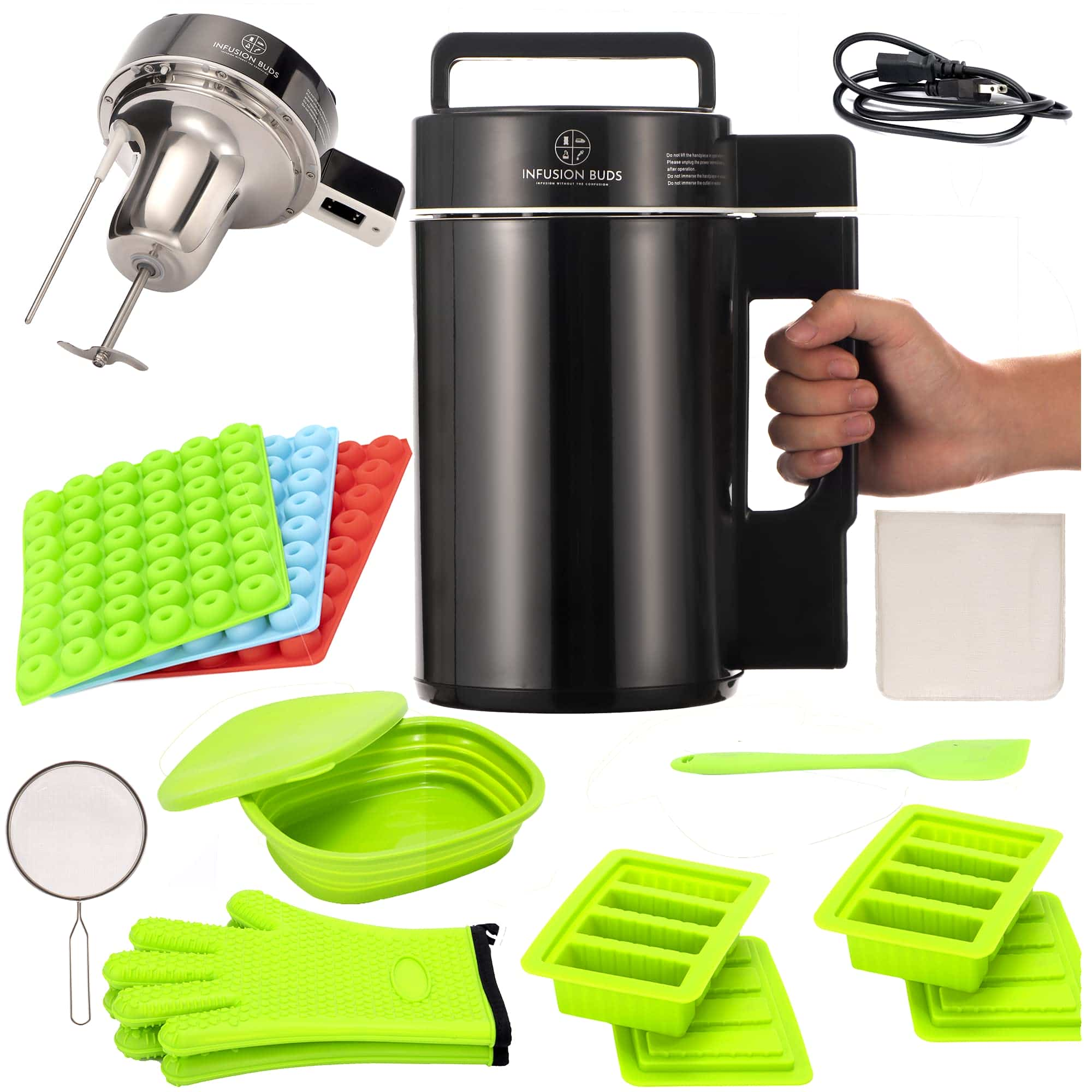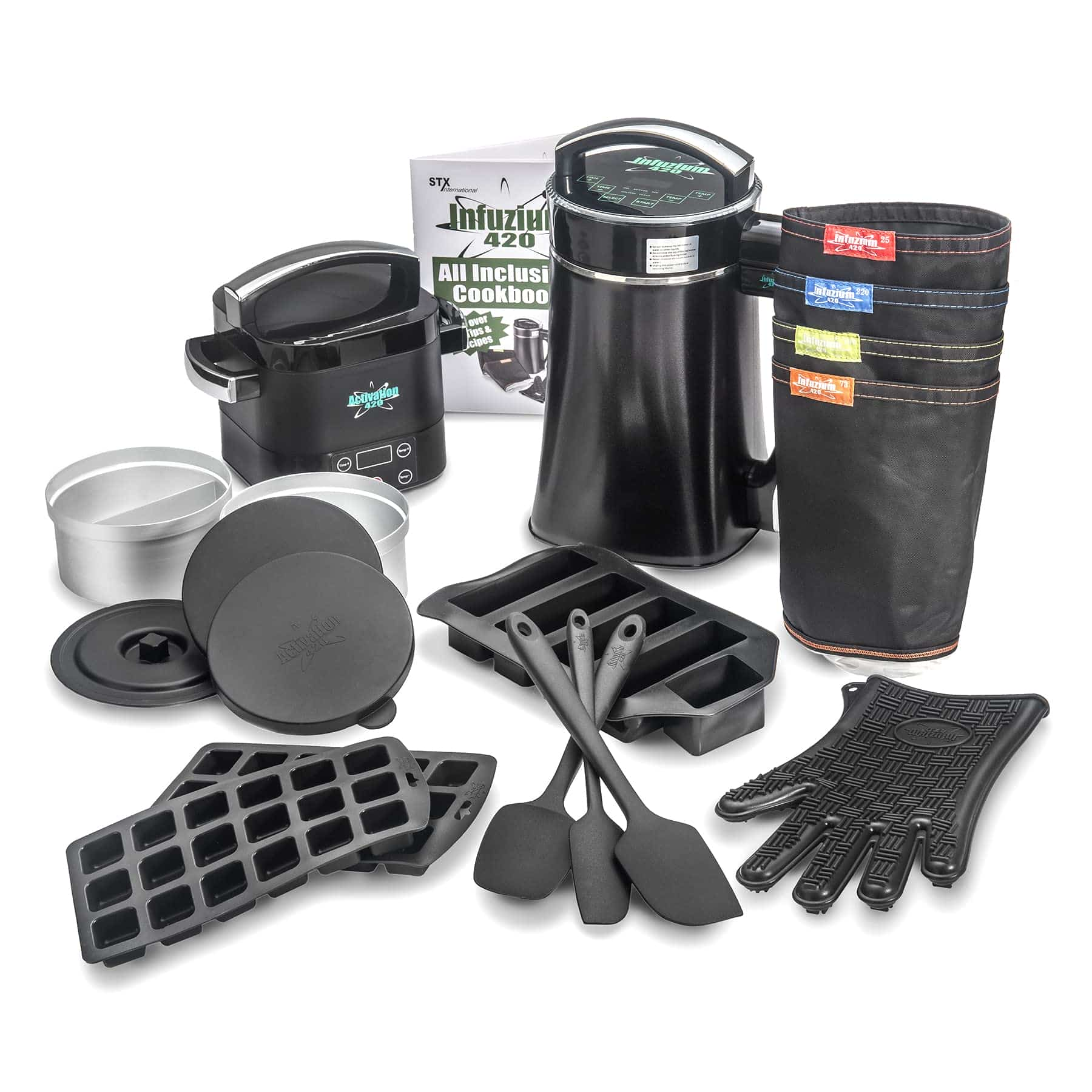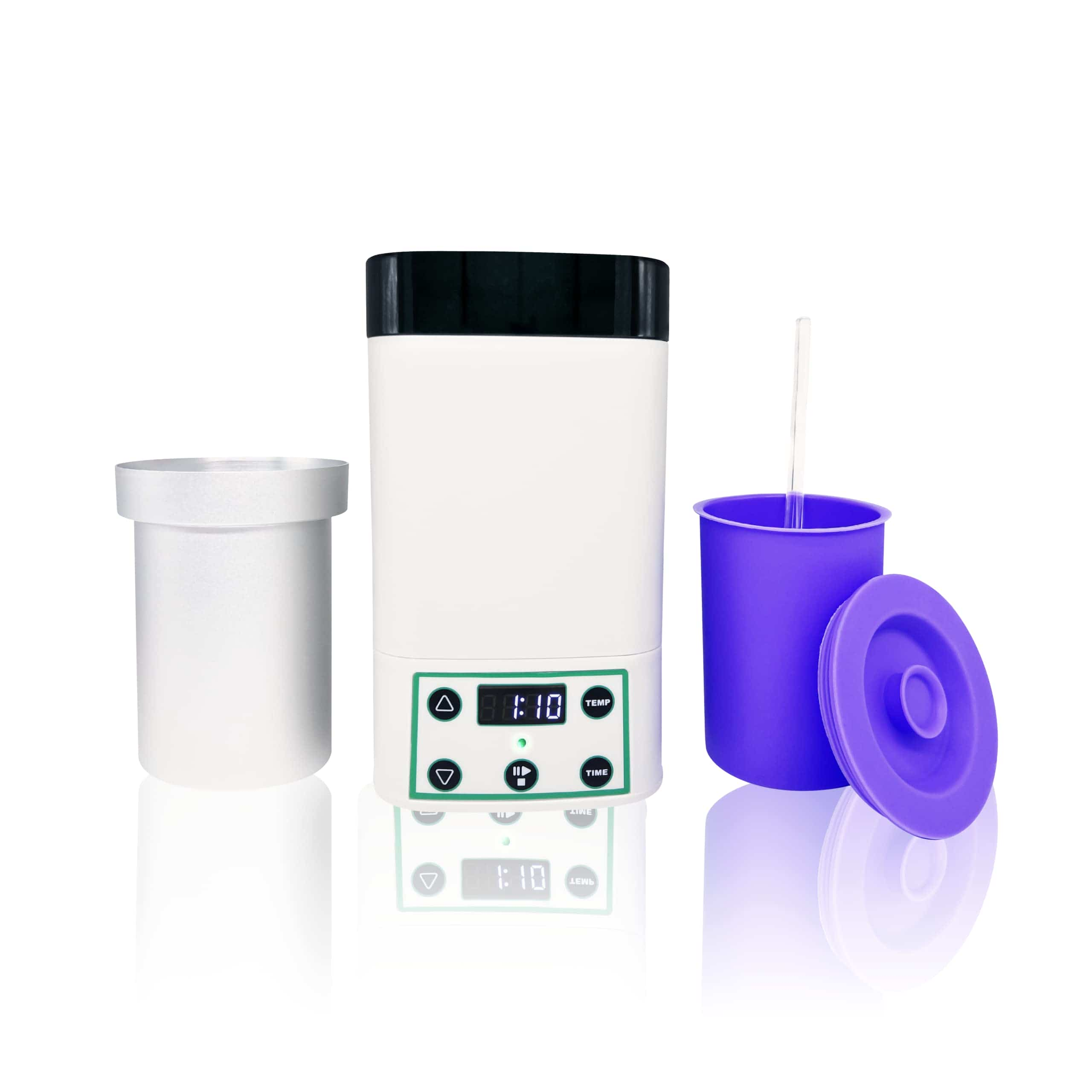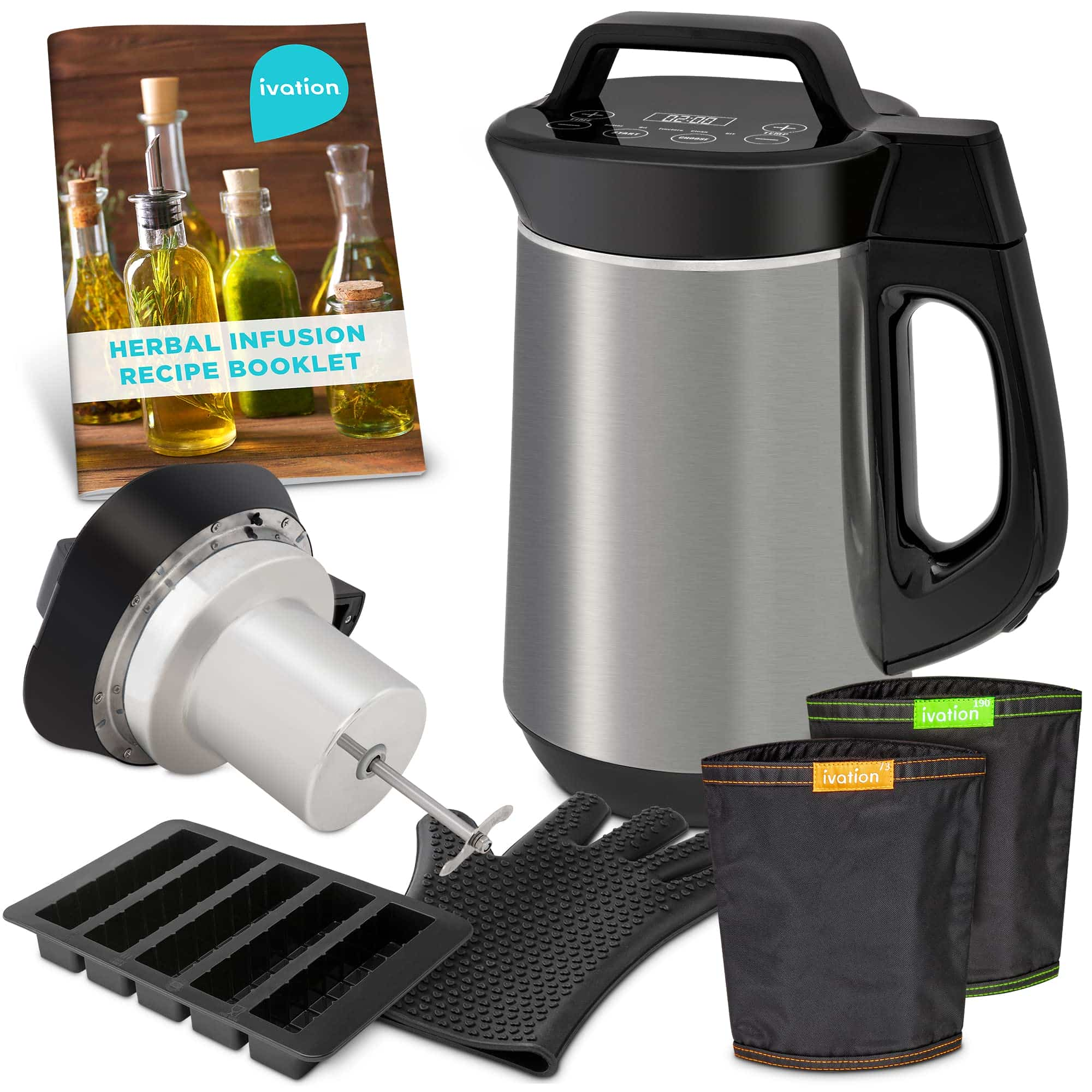Herbal Tea
How To Make Herbal Tea Blends
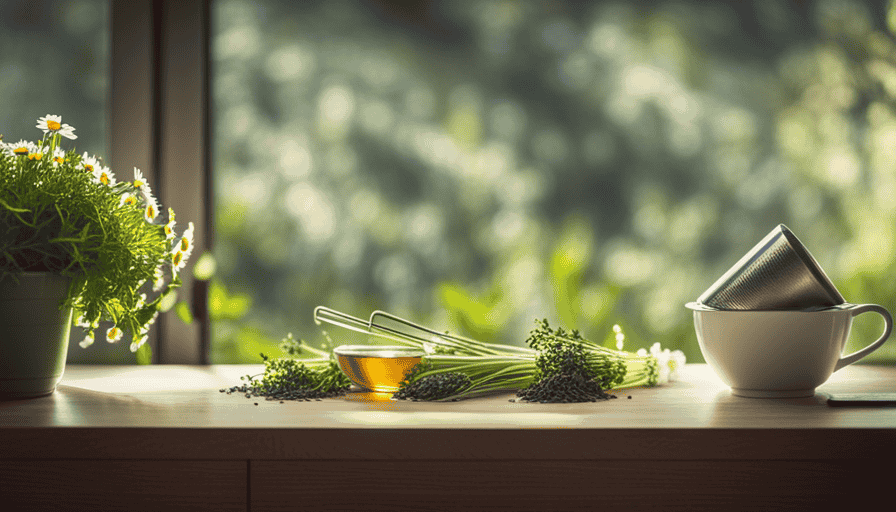
When it comes to herbal tea blends, the possibilities are endless. As the saying goes, ‘variety is the spice of life,’ and that certainly holds true when it comes to crafting your own unique blends. With a little know-how and a dash of creativity, you can create a tea experience that is not only delicious but also tailored to your specific needs and preferences.
In this article, I will guide you through the process of making herbal tea blends from start to finish. We will explore the benefits of herbal tea, learn how to choose the perfect base ingredients, and discover the art of mixing and matching flavors. I will share step-by-step instructions on how to prepare and brew your tea blend, and offer tips on how to get creative with your creations.
So grab your favorite mug, kick back, and get ready to embark on a journey of herbal tea bliss. Let’s dive in and start brewing some magic!
Key Takeaways
- Herbal tea blends offer a wide range of health benefits.
- Mixing and matching herbs, spices, and botanicals allows for unique flavor profiles and medicinal properties.
- Brewing herbal tea requires attention to detail and specific techniques to extract flavors and aromas.
- Personalization is key in creating tea blends, allowing individuals to customize their blends to match their taste preferences.
Understand the Benefits of Herbal Tea
Did you know that herbal tea blends offer a wide range of amazing health benefits? Exploring the different herbal tea varieties can be an exciting journey to improve your overall well-being.
Herbal teas are made from a variety of plants, such as chamomile, peppermint, and hibiscus, each with their own unique properties and flavors. Understanding the health benefits of herbal tea can help you choose the right blend for your needs.
Chamomile tea, for example, is known for its calming properties and can help reduce anxiety and promote better sleep. Peppermint tea is great for digestion and can soothe an upset stomach. Hibiscus tea is rich in antioxidants and can help lower blood pressure.
Herbal teas are also a great alternative for those who are sensitive to caffeine or want to reduce their intake. They’re naturally caffeine-free and can be enjoyed at any time of the day without disrupting your sleep patterns.
Now that you know the benefits of herbal tea, let’s move on to the next section and choose your base ingredients for creating your own unique herbal tea blends.
Choose Your Base Ingredients
When choosing the base ingredients for your herbal tea blends, it’s important to explore different types of herbs. This allows you to create unique flavor profiles that suit your taste preferences.
Additionally, considering the health benefits of each herb can help you tailor your blends to support specific wellness goals.
Explore Different Types of Herbs
To explore different types of herbs, you’ll want to start by researching the various flavors and benefits they offer.
When it comes to choosing herbs for relaxation, there are several options to consider. Chamomile is a popular choice, known for its calming properties and ability to promote better sleep. Lavender is another herb that can help reduce stress and anxiety, while also aiding in digestion.
On the other hand, if you’re looking for herbs to improve digestion, peppermint is a great choice. It can soothe an upset stomach and relieve bloating. Ginger is another herb that’s often used to aid digestion and reduce nausea.
As you delve into the world of herbal tea blends, consider each herb’s flavor profiles and health benefits. This will help you create the perfect blend for your desired outcome.
Consider Flavor Profiles and Health Benefits
Discover the delightful flavors and amazing health benefits that come with exploring various types of herbs. Here are three compelling reasons to consider flavor profiles and health benefits when creating herbal tea blends:
-
Flavor pairings: Experiment with different combinations of herbs to create unique and delicious flavor profiles. For example, pairing chamomile with lavender creates a calming and floral blend, while adding mint to lemon verbena creates a refreshing and invigorating tea.
-
Medicinal properties: Each herb has its own unique set of medicinal properties. Incorporating herbs like ginger for digestion, echinacea for immune support, or hibiscus for cardiovascular health can enhance the health benefits of your herbal tea blends.
-
Wellness customization: By understanding the medicinal properties of different herbs, you can customize your tea blends to target specific health concerns. For example, blending turmeric and ginger can help reduce inflammation, while combining peppermint and chamomile can aid in digestion.
Consider these flavor pairings and medicinal properties as you explore the world of herbal tea blends. Now, let’s move on to how you can mix and match your ingredients to create the perfect blend.
Mix and Match Your Ingredients
Now, let’s get mixin’ and matchin’ your ingredients to create the perfect herbal tea blend! When it comes to mixing techniques, there are endless possibilities for creating unique and delicious herbal tea recipes. By combining different herbs, spices, and botanicals, you can create a blend that suits your taste preferences and offers various health benefits.
To help you get started, here’s a handy table showcasing some popular ingredients and their flavor profiles and health benefits:
| Ingredient | Flavor Profile | Health Benefits |
|---|---|---|
| Chamomile | Floral, soothing | Calming, aids sleep |
| Peppermint | Refreshing | Digestive aid |
| Lavender | Floral, fragrant | Relaxation, stress relief |
| Ginger | Spicy, warming | Anti-inflammatory, digestion aid |
| Lemon balm | Citrusy, minty | Mood enhancer, relaxation |
| Hibiscus | Tangy, tart | Blood pressure control, antioxidant |
| Rooibos | Earthy, nutty | Antioxidant, caffeine-free |
| Cinnamon | Sweet, spicy | Blood sugar regulation, anti-inflammatory |
By mixing and matching these ingredients, you can create a blend that suits your preferences and provides specific health benefits you’re looking for. Once you’ve chosen your ingredients, it’s time to move on to preparing your tea blend.
In the next section, we will discuss how to prepare your tea blend and extract the maximum flavor and benefits from your ingredients.
Prepare Your Tea Blend
Let’s kickstart the process by getting your ingredients ready for the perfect blend of your choice! Here are five items that’ll help you create a truly delightful herbal tea experience:
-
Fresh herbs: Explore unique flavor combinations by using a variety of fresh herbs like mint, chamomile, lavender, and lemon balm. Each herb adds its own unique aroma and taste to the blend, allowing you to create a personalized tea that suits your preferences.
-
Dried flowers: Experiment with infusion times by adding dried flowers such as rose petals, hibiscus, or jasmine. These delicate blooms release their flavors slowly, so adjusting the steeping time can result in a more pronounced or subtle taste.
-
Citrus zest: Enhance the flavor profile of your tea by incorporating citrus zest. Whether it’s orange, lemon, or grapefruit, the zest adds a refreshing and zesty note to your blend.
-
Spices: Don’t be afraid to spice things up! Cinnamon, ginger, cardamom, and cloves can add warmth and depth to your tea, creating a cozy and comforting beverage.
-
Sweeteners: To balance out the flavors, consider adding natural sweeteners like honey or stevia. They not only add sweetness but also bring a touch of complexity to the overall taste.
Now that your ingredients are ready, it’s time to brew your herbal tea and unlock the full potential of your blend. Transitioning into the next section, we’ll explore the art of brewing and extracting the flavors from your carefully curated ingredients.
Brew Your Herbal Tea
Get ready to experience the full flavor and aroma of your personalized tea blend as we dive into the art of brewing and extracting the rich flavors from your carefully selected ingredients.
Brewing herbal tea is a delicate process that requires attention to detail and a few key techniques. The first step is to bring water to a boil, and then let it cool for a minute or two. This will ensure that the water is hot enough to extract the flavors, but not too hot to burn the delicate herbs.
Next, add your tea blend to a teapot or infuser, using about one teaspoon of herbs per cup of water. Pour the hot water over the herbs and let them steep for the recommended time, which can vary depending on the herbs used. Generally, herbal teas should steep for about 5-7 minutes, but it’s always a good idea to check the specific steeping times for the herbs in your blend.
Once the tea has steeped, strain out the herbs and enjoy the warm, soothing beverage.
Now, let’s move on to the next step and add enhancements and extras to take your tea to the next level.
Add Enhancements and Extras
When it comes to enhancing the flavor of herbal tea blends, there are a variety of options to choose from. Sweeteners and spices can add depth and richness to your tea, while citrus zest can provide a refreshing and tangy twist. Additionally, floral additions can bring a delicate and aromatic touch to your brew.
By experimenting with these enhancements and extras, you can create a personalized and flavorful cup of herbal tea that suits your taste preferences.
Sweeteners and Spices
Did you know that adding spices like cinnamon and sweeteners like honey to your herbal tea blend not only enhances the flavor, but also provides additional health benefits?
Here are three ways you can use sweetener alternatives and spice combinations to create a delightful and healthy herbal tea blend:
-
Try using stevia or agave syrup as natural sweetener alternatives. These options add a touch of sweetness without the calories and can help regulate blood sugar levels.
-
Experiment with spice combinations like ginger and turmeric for a warming and anti-inflammatory effect. These spices not only add depth to your tea, but also offer numerous health benefits, including boosting immunity and reducing inflammation.
-
For a cozy and comforting blend, add a sprinkle of nutmeg and a dash of vanilla extract. This combination adds a warm and inviting aroma to your tea, making it the perfect drink to unwind with.
Now that you know how to enhance your herbal tea blend with sweeteners and spices, let’s move on to the next section about citrus zest and floral additions.
Citrus Zest and Floral Additions
To create an irresistible and invigorating twist to your cup of herbal infusion, why not explore the tantalizing possibilities of adding citrus zest and delicate floral notes?
Citrus zest, such as lemon or orange, adds a refreshing and tangy flavor that perfectly complements the earthy tones of herbal tea blends. You can simply grate the zest or peel off thin strips and let them infuse in hot water along with your favorite herbs.
Floral additions like lavender, chamomile, or rose petals bring a subtle sweetness and a beautiful aroma to your tea. Dried flowers not only enhance the visual appeal of your blend but also offer various health benefits, such as relaxation and stress relief.
Discovering creative tea blends becomes a delightful journey when you explore the vibrant combination of citrus zest and floral pairings.
Discover Creative Tea Blends
Get ready to explore a world of unique and flavorful herbal tea blends! Creating your own tea blend recipes isn’t just a fun and creative process, but it also lets you tailor your tea to your specific tastes and needs.
Herbal infusions have a variety of benefits, from promoting relaxation and improving digestion to boosting immunity and reducing inflammation. By experimenting with different combinations of herbs, spices, and botanicals, you can create a tea blend that not only tastes delicious but also provides the health benefits you desire.
When it comes to discovering creative tea blends, the possibilities are endless. You can mix and match herbs like chamomile, lavender, and mint to create a soothing bedtime blend, or combine fruity flavors like hibiscus, rosehips, and orange peel for a refreshing iced tea. Adding spices such as cinnamon, ginger, and cardamom can give your blend a warming and invigorating twist. Don’t be afraid to think outside the box and try unconventional combinations like lemongrass and basil or rosemary and sage.
As you explore the world of herbal tea blends, you’ll find that the key to creating a personalized tea experience lies in experimentation and creativity. By understanding the flavors and properties of different herbs and botanicals, you can mix and match ingredients to create a blend that suits your taste preferences and wellness goals.
So, let’s dive into the next section and discover how to personalize your tea experience without limitations.
Personalize Your Tea Experience
When it comes to personalizing my tea experience, I love the freedom to customize my blends to suit my preferences. Whether it’s adding a touch of honey for sweetness or a splash of lemon for a tangy twist, I enjoy experimenting with different flavor combinations.
Additionally, I like to explore various brewing methods, such as steeping my tea for longer periods or using a teapot instead of a mug, to enhance the taste and aroma of my favorite teas.
It’s all about finding what works best for me and creating a tea experience that’s uniquely mine.
Customize Your Blends to Suit Your Preferences
Discover the endless possibilities of creating your own personalized herbal tea blends to perfectly match your unique taste preferences. By exploring unique flavor combinations and trying rare and exotic herbs, you can elevate your tea experience to new heights. Here are five exciting ideas to inspire you:
- Mix chamomile and lavender for a soothing and floral blend.
- Combine peppermint and lemongrass for a refreshing and invigorating infusion.
- Experiment with a blend of hibiscus and rosehips for a tart and tangy flavor.
- Create a calming blend by combining chamomile, lemon balm, and passionflower.
- For a spicy and warming tea, try blending ginger, cinnamon, and cardamom.
With these creative combinations, you can truly customize your herbal tea blends to suit your preferences. Once you’ve mastered the art of blending, it’s time to experiment with different brewing methods to enhance the flavors even further.
Experiment with Different Brewing Methods
Once you’ve mastered the art of blending, your tea experience will reach new heights when you start experimenting with different brewing methods.
It’s amazing how alternative techniques can bring out unique flavors in your herbal tea blends. One method to try is cold brewing. This involves steeping your tea leaves in cold water for several hours, resulting in a smooth and refreshing flavor.
Another option is to use a French press, which allows for a more robust and full-bodied brew.
Additionally, you can explore unique flavor combinations by adding spices or fruits to your tea blends and experimenting with different steeping times. The possibilities are endless!
As you delve into the world of alternative brewing techniques, you’ll find yourself creating blends that are truly one-of-a-kind.
So let’s move on to the next section, where we’ll discuss how to share and gift your blends with others.
Share and Gift Your Blends
When it comes to sharing and gifting your herbal tea blends, there are a couple of key points to consider.
First, hosting a tea tasting party is a great way to showcase your blends and introduce your friends and family to the world of herbal teas. Not only can you share your knowledge and expertise, but you can also create a fun and enjoyable experience for everyone involved.
Second, packaging your blends in beautiful containers adds an extra touch of elegance and thoughtfulness to your gifts. Whether it’s a handcrafted tin or a decorative glass jar, the packaging can make a lasting impression and enhance the overall presentation.
So, get ready to impress your loved ones with your delicious blends and stunning packaging!
Host a Tea Tasting Party
To truly appreciate the flavors of different herbal tea blends, nothing beats hosting a tea tasting party. It’s a delightful way to explore new flavors, learn about tea tasting techniques, and enjoy the company of friends. To make your tea tasting party a success, here are some tea pairing suggestions to wow your guests. In a three-column and three-row table, you can display the different tea blends and their suggested pairings. For example, pair a soothing chamomile blend with honey cookies for a sweet treat, or a refreshing peppermint blend with cucumber sandwiches for a light and refreshing combination. By offering a variety of tea blends and pairing options, you’ll create a memorable experience for your guests. And speaking of memorable experiences, in the next section, we’ll dive into how to package blends in beautiful containers, perfect for sharing or gifting.
Package Blends in Beautiful Containers
After hosting a delightful tea tasting party, where my guests enjoyed a variety of flavors and aromas from different blends, it’s time to think about how to package these herbal tea blends in beautiful containers.
Presentation is key when it comes to gift-giving or simply enhancing the visual appeal of your own tea collection. There are countless creative containers to choose from, such as glass jars, decorative tins, or even hand-painted ceramic pots. The options are endless, allowing you to express your personal style and create a visually stunning display.
To evoke emotion in your audience, consider these four ideas:
-
Delicate glass jars with vintage labels for a nostalgic touch.
-
Elegant tins adorned with intricate patterns for a touch of luxury.
-
Rustic burlap bags tied with colorful ribbons for a charming, homemade feel.
-
Handcrafted ceramic pots with unique designs, showcasing the artisanal aspect of your tea blends.
With beautiful packaging and creative containers, your herbal tea blends will not only taste amazing but also make a stunning visual statement.
Now, let’s continue exploring and learning about the art of blending flavors.
Continue Exploring and Learning
As I continue my exploration and learning, I’ve discovered that incorporating various herbs into my tea blends not only adds complexity of flavors, but also provides a wide range of health benefits.
When I continue exploring and expand my knowledge on herbal teas, I find that there’s an endless variety of herbs that can be used to create unique blends. Each herb offers its own distinct flavor profile and medicinal properties, allowing me to tailor my tea blends to my specific needs and preferences.
One herb that I’ve recently incorporated into my tea blends is chamomile. Not only does it add a subtle floral note to my teas, but it also has calming properties that help me relax and unwind after a long day.
Another herb that I’ve been experimenting with is peppermint. Its refreshing and invigorating flavor adds a delightful twist to my tea blends, while also aiding in digestion and soothing an upset stomach.
By continuing to explore and learn about different herbs, I’m able to create tea blends that not only taste delicious, but also provide numerous health benefits. Whether it’s incorporating herbs for their immune-boosting properties, soothing qualities, or simply for their unique flavors, the possibilities are endless.
So, as I continue my journey into the world of herbal tea blends, I’m excited to discover new herbs and create blends that are both flavorful and beneficial for my well-being.
Frequently Asked Questions
How long does herbal tea stay fresh?
Herbal tea blends have a surprisingly long shelf life if stored properly. On average, they can stay fresh for up to 1-2 years.
To ensure the best quality and taste, it’s important to store them in airtight containers, away from light, heat, and moisture. This will help preserve their aroma and potency.
Remember to label your blends with the date of preparation, so you can keep track of their freshness.
Can I use dried herbs from my garden to make tea?
Yes, you can definitely use dried herbs from your garden to make tea. Using fresh herbs from my garden to make tea is a great way to enjoy the flavors and benefits of herbal tea.
To properly dry herbs for tea making, harvest the herbs when they’re at their peak and hang them upside down in a cool, dry place. Once the herbs are completely dry, store them in airtight containers to maintain their freshness and potency.
Are there any herbs that should not be mixed together in a tea blend?
There are indeed some herbs that shouldn’t be mixed together in a tea blend due to potential interactions. It’s important to be cautious when combining certain herbs, as they can have different effects on the body when consumed together.
For example, herbs like licorice and St. John’s wort may interact with certain medications. Additionally, herbs like ephedra and yohimbe should be avoided due to their potential adverse effects.
It’s always best to do thorough research or consult a knowledgeable herbalist before creating your own tea blends.
Can I add sweeteners like honey or stevia to my herbal tea blend?
Yes, you can definitely add sweeteners like honey or stevia to your herbal tea blend. Both honey and stevia are popular choices for adding sweetness to tea. Honey not only enhances the flavor but also offers additional health benefits like soothing a sore throat and providing antioxidants. Stevia, on the other hand, is a natural sweetener with zero calories. It’s a great option for those who want to cut down on sugar intake.
How do I store my herbal tea blends to maintain their flavor and freshness?
Storing herbal tea blends is like preserving a delicate melody. To maintain their flavor and freshness, I recommend storing them in airtight containers away from light, heat, and moisture. This will help retain their aromatic essence and prevent any loss of potency.
Properly stored, herbal tea blends can last for up to a year, but it’s best to use them within six months for optimal taste. Remember, the key is to keep them in a cool, dark place for a harmonious tea experience.
Conclusion
In conclusion, creating your own herbal tea blends is a delightful and rewarding experience. By understanding the benefits of herbal tea and selecting the perfect base ingredients, you can craft a tea blend that suits your taste and wellness needs.
Mixing and matching various herbs and spices allows for endless possibilities and unique flavors. With a little creativity, you can personalize your tea experience and even share your blends with friends and loved ones.
So, why not embark on this aromatic journey and continue exploring the world of herbal tea? Your taste buds will thank you.
Arf, an author and an innovative enthusiast of coffee, coffee alternatives, and tea, plays a crucial role as a contributor to the esteemed Cappuccino Oracle platform. Renowned for his curiosity and passion for these captivating beverages, Arf has carved out a unique space for himself in the world of exploration and writing. He realized that coffee, coffee alternatives, and tea are not mere drinks to keep one awake, but universes of flavors and stories waiting to be explored.
Arf’s articles for Cappuccino Oracle blend meticulous research with personal experiences, providing readers with an in-depth understanding of various types of coffee, coffee alternatives, and tea, along with their unique characteristics, cultures, and histories. His honest reviews and engaging narratives guide readers on their own journeys, helping them discover their preferences and find their perfect brew.
Herbal Tea
Soothing Secrets of Herbal Tea
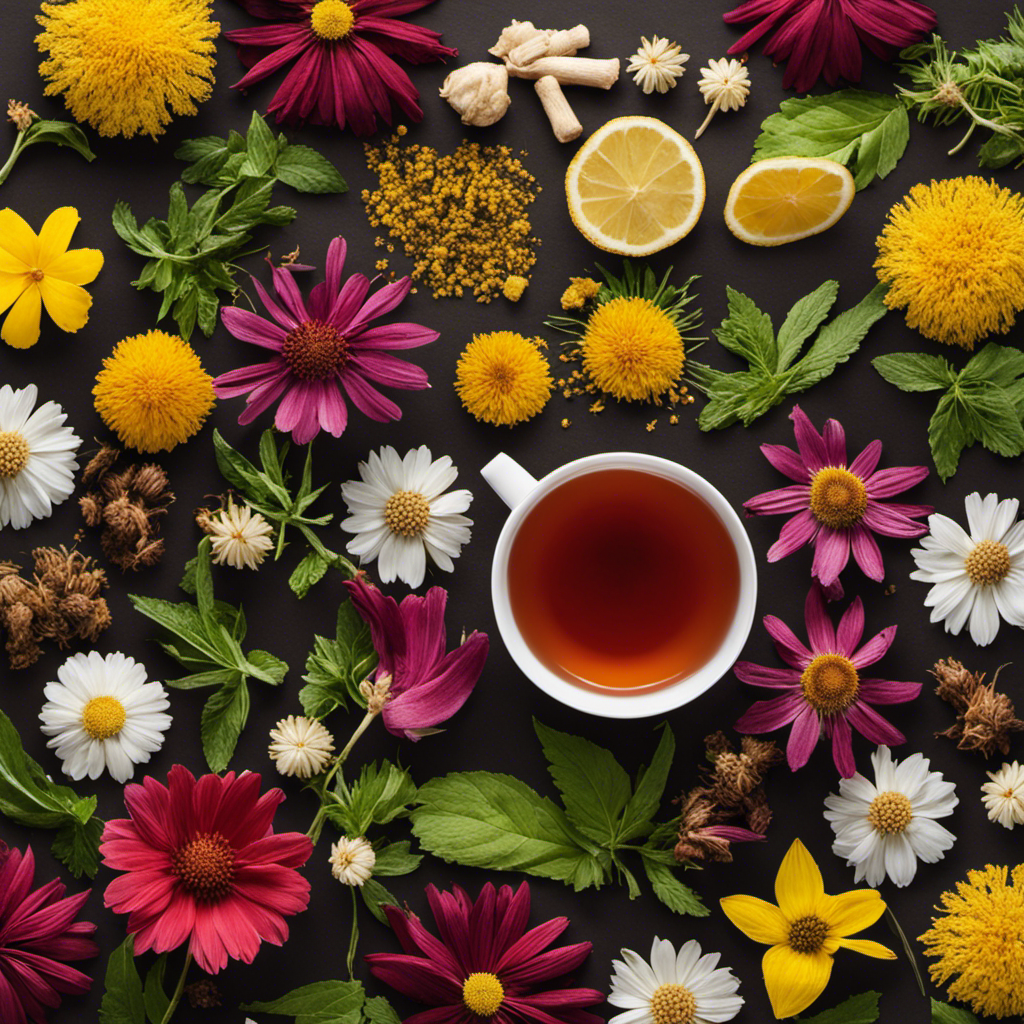
As a tea enthusiast, I have always been intrigued by the calming benefits of herbal tea. From chamomile to peppermint, hibiscus to ginger, and echinacea to dandelion, these teas provide distinct properties that address specific needs.
Whether you’re seeking relaxation, healing, or a boost in immunity, herbal teas have it all. In this article, we’ll explore the benefits of chamomile tea, the digestive powerhouse of peppermint tea, and so much more.
So grab a cup, sit back, and let’s uncover the comforting world of herbal tea together.
Key Takeaways
- Chamomile tea promotes relaxation and reduces anxiety, making it a great option for those seeking a sense of calmness.
- Peppermint tea aids in digestion and provides relief from stomach issues such as spasms and cramps.
- Hibiscus tea improves heart health and boosts the immune system with its high vitamin C content.
- Ginger tea soothes nausea and reduces inflammation in the body, offering long-term benefits for overall well-being.
The Soothing Benefits of Chamomile Tea
I love how chamomile tea soothes my mind and helps me relax after a long day. Chamomile tea is well-known for its calming effects on the body and mind. It has been used for centuries to promote relaxation and reduce anxiety.
Research has shown that chamomile tea contains compounds that bind to certain receptors in the brain, promoting a sense of calmness and tranquility. In addition to its soothing properties, chamomile tea also offers other health benefits. It can help with sleep disorders, digestive issues, and even skin conditions.
This herbal tea is packed with antioxidants and anti-inflammatory compounds that support overall well-being. Whether you’re looking to unwind after a stressful day or improve your sleep quality, a cup of chamomile tea can be a nurturing and soothing addition to your routine.
Peppermint Tea: A Digestive Powerhouse
Peppermint tea, with its refreshing flavor and soothing properties, is known as a digestive powerhouse that can help relieve bloating and improve overall digestion. Here are three key reasons why peppermint tea is a great choice for those seeking digestive relief:
-
Anti-inflammatory properties: Peppermint tea contains menthol, which helps relax the muscles of the gastrointestinal tract, reducing inflammation and easing digestion.
-
Calming effect: The natural compounds in peppermint tea have a relaxing effect on the stomach, reducing spasms and cramps that can cause discomfort.
-
Bloating relief: Peppermint tea has been shown to help alleviate bloating by reducing gas and promoting the passage of food through the digestive system.
By harnessing the healing properties of peppermint tea, individuals can find relief from digestive issues and enjoy improved overall well-being.
Now, let’s explore the next remarkable herbal tea – hibiscus tea – and its incredible healing benefits.
Harnessing the Healing Properties of Hibiscus Tea
By exploring the healing properties of hibiscus tea, individuals can uncover its potential for soothing and healing various ailments.
Hibiscus tea, derived from the vibrant and beautiful hibiscus flower, has been used for centuries in traditional medicine for its numerous health benefits. Packed with antioxidants, hibiscus tea has been shown to lower blood pressure, reduce inflammation, and improve heart health.
Additionally, its high vitamin C content boosts the immune system and aids in the prevention of illnesses. Incorporating hibiscus tea into your daily routine can be as simple as brewing a cup in the morning or sipping on it throughout the day.
Its naturally sweet and tart flavor makes it a refreshing beverage choice, and its potential healing power makes it a valuable addition to any wellness regimen.
Ginger Tea: Nature’s Remedy for Nausea and Inflammation
Ginger tea is a soothing and effective remedy for nausea and inflammation, often providing relief when consumed regularly.
As a natural remedy for motion sickness, ginger tea has been used for centuries to alleviate symptoms such as dizziness and nausea. It works by calming the stomach and reducing the feeling of queasiness.
Additionally, ginger tea is known for its ability to reduce inflammation in the body. This is due to the presence of gingerols, which have been shown to have anti-inflammatory properties. By reducing inflammation, ginger tea can help relieve symptoms associated with conditions such as arthritis and digestive disorders.
Regular consumption of ginger tea can provide long-term benefits for those seeking relief from nausea and inflammation.
Echinacea and Dandelion Teas: Boosting Immunity and Detoxification
I love drinking echinacea and dandelion teas because they boost my immunity and help detoxify my body. Echinacea tea is known for its immune-enhancing properties and can help prevent and fight off infections. Dandelion tea, on the other hand, acts as a natural diuretic, promoting detoxification by flushing out toxins from the body.
Incorporating these teas into my daily routine has had a positive impact on my overall well-being. To illustrate the benefits of echinacea and dandelion teas, I have prepared a table below:
| Tea | Boosting Immunity | Detoxification |
|---|---|---|
| Echinacea | Enhances immune function | Supports toxin removal |
| Dandelion | Strengthens immune system | Aids in detoxifying |
Frequently Asked Questions
Are There Any Potential Side Effects or Risks Associated With Drinking Chamomile Tea?
Drinking chamomile tea has potential side effects and risks. While generally safe, it can cause allergic reactions, interact with medications, and increase the risk of bleeding. It’s important to consult a healthcare professional before consuming chamomile tea.
How Does Peppermint Tea Help With Digestion and What Specific Digestive Issues Can It Alleviate?
Peppermint tea helps with digestion by soothing the digestive tract and relieving symptoms like bloating and gas. It can alleviate specific issues such as irritable bowel syndrome (IBS) and indigestion.
Can Hibiscus Tea Help Lower Blood Pressure and Improve Heart Health?
Hibiscus tea has many benefits, including potentially lowering blood pressure and improving heart health. Its natural properties make it a great addition to a healthy lifestyle. Consider incorporating hibiscus tea into your routine for these potential advantages.
What Are the Specific Health Benefits of Ginger Tea for Nausea and Inflammation?
Ginger tea is known for its soothing qualities and healing properties. It can provide relief from nausea and inflammation, making it a great choice for those with digestive issues or seeking inflammation relief.
How Do Echinacea and Dandelion Teas Support the Immune System and Aid in Detoxification?
Echinacea and dandelion teas support the immune system and aid in detoxification. They have unique properties that promote overall health. Their benefits include boosting immunity and helping the body eliminate toxins.
Conclusion
In conclusion, herbal teas such as chamomile, peppermint, hibiscus, ginger, echinacea, and dandelion offer a wide range of soothing, relaxing, and healing qualities.
Chamomile tea aids in sleep and relaxation, while peppermint tea promotes digestion.
Hibiscus tea harnesses healing properties, and ginger tea is a natural remedy for nausea and inflammation.
Echinacea and dandelion teas boost immunity and aid in detoxification.
Incorporating these teas into your daily routine can provide numerous health benefits.
So go ahead, sip on these herbal wonders and let nature work its magic.
Arf, an author and an innovative enthusiast of coffee, coffee alternatives, and tea, plays a crucial role as a contributor to the esteemed Cappuccino Oracle platform. Renowned for his curiosity and passion for these captivating beverages, Arf has carved out a unique space for himself in the world of exploration and writing. He realized that coffee, coffee alternatives, and tea are not mere drinks to keep one awake, but universes of flavors and stories waiting to be explored.
Arf’s articles for Cappuccino Oracle blend meticulous research with personal experiences, providing readers with an in-depth understanding of various types of coffee, coffee alternatives, and tea, along with their unique characteristics, cultures, and histories. His honest reviews and engaging narratives guide readers on their own journeys, helping them discover their preferences and find their perfect brew.
Herbal Tea
Why Is Herbal Tea Not Real Tea
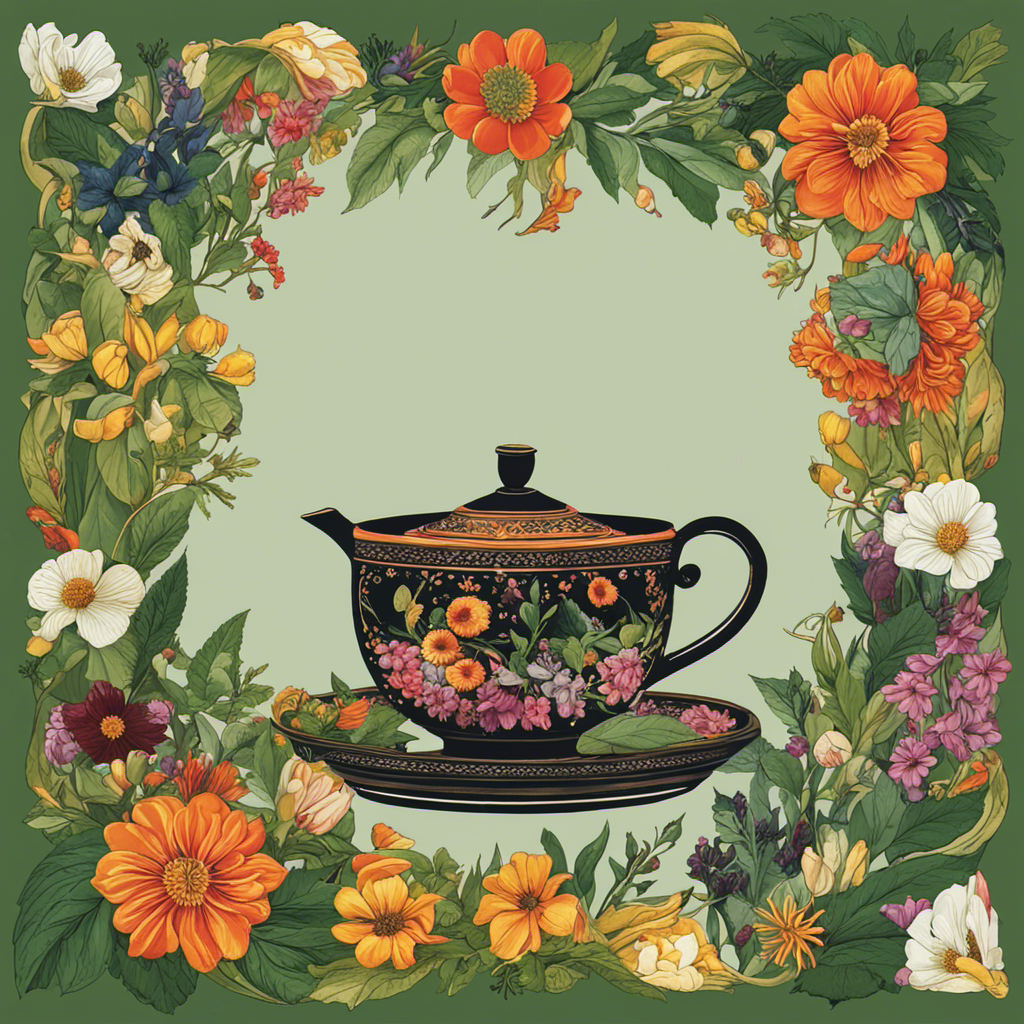
The adage, ‘Not all teas are created equal,’ perfectly encapsulates the world of herbal tea. It might come as a surprise to many that herbal tea doesn’t fall under the category of what’s traditionally recognized as ‘real’ tea. So, what’s the reason behind this? Allow me to explain it to you.
Traditional tea, such as black, green, or oolong, is derived from the leaves of the Camellia sinensis plant. It undergoes a specific process of oxidation and fermentation, which gives it that distinct flavor and caffeine content.
On the other hand, herbal tea is made from various plants, flowers, and herbs, like chamomile or peppermint, which are steeped in hot water. These herbal infusions offer a wide range of flavors and potential health benefits, but they lack the true tea leaves and caffeine found in traditional tea.
So, while herbal tea may not be classified as ‘real’ tea, it certainly has its own unique charm and allure.
Key Takeaways
- Herbal tea is not made from the Camellia sinensis plant.
- Herbal tea lacks true tea leaves and caffeine found in traditional tea.
- Herbal tea is made from various plants, flowers, and herbs.
- Herbal tea offers a wide range of flavors and potential health benefits.
The Difference Between Herbal Tea and Traditional Tea
There exists a discernible distinction between herbal tea and traditional tea. Traditional tea, also known as true tea, is made from the leaves of the Camellia sinensis plant. It includes varieties like green tea, black tea, oolong tea, and white tea.
On the other hand, herbal tea is not made from the Camellia sinensis plant but is instead made from a combination of herbs, flowers, fruits, and spices. This fundamental difference in ingredients leads to variations in taste, aroma, and health benefits.
Traditional tea contains caffeine and antioxidants, while herbal tea is typically caffeine-free and often offers unique therapeutic properties depending on the herbs used.
Both traditional tea and herbal tea have their own merits, but which one is better ultimately depends on individual preferences and health needs. Understanding traditional tea, however, provides a deeper insight into the world of tea beyond herbal alternatives.
Understanding Traditional Tea
When it comes to traditional tea, one must understand the importance of the Camellia sinensis plant. This plant is the foundation of all true teas, including green, black, white, and oolong teas.
Each of these teas is unique in its flavor, aroma, and health benefits, making traditional tea a fascinating and diverse world to explore.
The Camellia sinensis plant
You might be surprised to learn that the Camellia sinensis plant is the secret ingredient that gives real tea its authentic flavor and aroma. Cultivated in various regions around the world, including China, India, and Japan, the camellia sinensis plant is the foundation of traditional tea production.
The leaves of this plant are carefully harvested, processed, and brewed to create the different types of traditional tea that we enjoy. The specific cultivation methods, such as the climate, soil conditions, and altitude, all contribute to the unique characteristics of each tea variety.
From delicate white tea to robust black tea, the camellia sinensis plant is responsible for the vast array of flavors and aromas found in traditional tea. Transitioning into the subsequent section about different types of traditional tea, it’s fascinating to explore the diverse world of tea varieties and their distinct qualities.
Different types of traditional tea
Let’s delve into the fascinating realm of traditional tea and discover the diverse array of flavors and aromas that different types offer. Traditional tea, derived from the leaves of the Camellia sinensis plant, has a rich history and cultural significance that has been passed down through generations. There are several types of traditional tea, each with its own distinct characteristics and brewing techniques. To provide a visual representation of these ideas, I have created a table below:
| Type of Tea | Flavor Profile | Brewing Technique |
|---|---|---|
| Green Tea | Fresh, grassy | Steep at 175°F |
| Black Tea | Bold, robust | Steep at 212°F |
| Oolong Tea | Floral, fruity | Steep at 195°F |
These traditional teas have long been cherished for their unique tastes and aromas, and their brewing techniques vary to bring out the best in each type. Now, let’s explore the variety of herbal tea options and their distinctions in the subsequent section.
The Variety of Herbal Tea Options
When it comes to herbal tea, there’s a wide variety of options to choose from. These teas are made from plants, herbs, fruits, and spices. Each offers unique flavors and health benefits.
Whether it’s a calming chamomile, a refreshing peppermint, or a soothing lavender, there’s an herbal tea for every taste and need.
Plants, herbs, fruits, and spices used
Although herbal tea doesn’t contain tea leaves, it can still be enjoyed as a hot beverage made from various plants, herbs, fruits, and spices. Here are four examples of popular ingredients used in herbal teas:
-
Chamomile: Known for its calming properties, chamomile tea is often consumed before bed to promote a restful sleep.
-
Peppermint: With its refreshing and soothing qualities, peppermint tea is a popular choice for relieving digestive discomfort.
-
Hibiscus: This vibrant flower is used to create a tart and tangy herbal tea that’s rich in antioxidants.
-
Ginger: Known for its spicy and warming flavor, ginger tea is often enjoyed for its potential anti-inflammatory and digestive benefits.
These diverse ingredients not only provide unique flavors but also offer various health benefits.
Transitioning into the next section, let’s explore the incredible range of flavors and the potential health benefits herbal teas have to offer.
Unique flavors and health benefits
After discussing the various plants, herbs, fruits, and spices used in herbal tea, let’s now explore the unique flavors and therapeutic effects that make this beverage so popular.
One of the fascinating aspects of herbal tea is its wide range of flavors. From the refreshing taste of mint to the soothing aroma of chamomile, each herbal infusion offers a distinct and delightful experience for the taste buds. Not only do these flavors provide a pleasant sensory experience, but they also have therapeutic effects on the body.
For example, lavender tea is known for its calming properties, while ginger tea is often used to aid digestion. These health benefits make herbal tea a popular choice for those seeking a natural approach to wellness.
Now, let’s delve into the absence of caffeine in herbal tea and its impact on our bodies.
The Absence of Caffeine in Herbal Tea
When it comes to herbal tea, one key point to consider is the absence of caffeine. As someone who prefers to avoid caffeine, I appreciate having natural alternatives to choose from.
Not only does caffeine-free herbal tea provide a calming and soothing experience, but it also offers various health benefits, making it a great option for those looking for a refreshing and caffeine-free beverage.
Natural alternatives to caffeine
If you’re looking for a natural alternative to caffeine, herbal tea can be a great option for you. Here are some natural energy boosters that can help you reduce your caffeine intake:
-
Matcha Green Tea: This powdered tea is rich in antioxidants and contains a small amount of caffeine. It provides a gentle energy boost without the jitters.
-
Ginseng Tea: Ginseng is known for its ability to improve mental focus and increase energy levels. It can be a great caffeine-free alternative for those looking for a natural pick-me-up.
-
Peppermint Tea: Peppermint has a refreshing and invigorating effect. It can help increase alertness and provide a natural energy boost.
-
Rooibos Tea: This herbal tea is caffeine-free and packed with antioxidants. It can help reduce fatigue and promote overall well-being.
Incorporating these natural alternatives into your routine can be a great way to enjoy the benefits of caffeine-free options.
Benefits of caffeine-free options
By incorporating natural alternatives to caffeine into your routine, you can enjoy the numerous benefits of opting for caffeine-free options. Not only do these alternatives provide a healthier way to stay energized, but they also offer additional wellness benefits. One popular option is herbal tea, which is a flavorful and soothing alternative to traditional tea. Herbal teas are caffeine-free and can be enjoyed throughout the day without the worry of disrupting your sleep or causing jitters. They come in a variety of flavors and blends, each with its own unique health properties. For example, chamomile tea is known for its calming effects, while peppermint tea can aid digestion. By exploring the world of caffeine-free alternatives, you can find a herbal tea that suits your taste and supports your overall well-being. Transitioning into the next section, herbal tea can also be a great relaxation aid.
Herbal Tea as a Relaxation Aid
Herbal tea is a fantastic relaxation aid due to its calming and soothing properties. It can help to calm the mind and body, promoting a sense of tranquility and peace.
Additionally, herbal tea has been found to promote better sleep, allowing for a more restful and rejuvenating night’s rest.
Lastly, herbal tea can provide stress relief, helping to reduce feelings of anxiety and tension. So, if you’re looking for a natural way to relax and unwind, a cup of herbal tea might be just what you need.
Calming and soothing properties
The calming and soothing properties of herbal tea can provide a sense of tranquility and relaxation. Herbal teas are known for their ability to calm the mind and body, promoting a feeling of peace and serenity.
Here are five ways in which herbal tea can help you achieve a deeper sense of calm and relaxation:
- Chamomile tea is renowned for its calming effects, helping to reduce anxiety and promote relaxation.
- Lavender tea has a soothing aroma that can ease stress and help you unwind after a long day.
- Peppermint tea can provide a cooling sensation that relaxes both the body and mind.
- Lemon balm tea has natural sedative properties that can help alleviate restlessness and promote a peaceful sleep.
- Valerian root tea is known for its calming effects on the nervous system, helping to relieve tension and anxiety.
By incorporating these calming teas and soothing herbs into your daily routine, you can promote better sleep and stress relief.
Promoting better sleep and stress relief
Imagine sinking into a soft bed of clouds, your worries melting away as you drift into a deep and restful sleep. Herbal tea has been known to promote better sleep and reduce anxiety, making it a popular choice for those seeking a natural remedy for sleep troubles.
Certain herbs, such as chamomile and valerian root, contain compounds that have a calming effect on the nervous system, helping to induce relaxation and ease tension. These herbs can also help reduce anxiety, allowing the mind to quiet down and prepare for a restful night’s sleep.
Additionally, herbal teas are caffeine-free, which is essential for those sensitive to stimulants that can interfere with sleep. So, if you’re looking for a natural way to improve your sleep quality and reduce stress, herbal tea may be the perfect solution.
Transitioning into exploring the health benefits of herbal tea, let’s delve deeper into its various advantages.
Exploring the Health Benefits of Herbal Tea
When it comes to herbal tea, there are two key points to consider: its antioxidant properties and the targeted health benefits of different herbs.
Herbal teas are known for their high levels of antioxidants, which help protect the body from free radicals and reduce the risk of chronic diseases.
Additionally, different herbs used in herbal teas offer specific health benefits. For example, chamomile is known for its relaxation properties, peppermint aids in digestion, and ginger boosts immunity.
So, not only do herbal teas provide a delightful beverage option, but they also offer a range of health benefits depending on the herbs used.
Antioxidant properties
Contrary to popular belief, herbal tea lacks the same antioxidant properties as real tea. While real tea, such as green tea, is packed with antioxidant-rich ingredients like catechins and polyphenols, herbal tea is made from a variety of herbs, fruits, and flowers that don’t contain the same levels of antioxidants. To better illustrate this point, let’s compare the antioxidant content of green tea and some common herbal teas in the table below:
| Tea Type | Antioxidant Content |
|---|---|
| Green tea | High |
| Chamomile tea | Low |
| Peppermint tea | Moderate |
As you can see, green tea has a high antioxidant content, while herbal teas like chamomile and peppermint have lower levels. This distinction is important because antioxidants play a crucial role in protecting our cells from damage caused by free radicals. Moving forward, we will explore the targeted health benefits of different herbs, highlighting their unique properties.
Targeted health benefits of different herbs
Discover the diverse and distinct health benefits of different herbs, harnessing their healing powers and promoting overall well-being. Each herb possesses targeted health benefits that can address specific health concerns.
For example, chamomile is known for its calming properties and can help alleviate anxiety and promote better sleep. Peppermint is commonly used to soothe digestive issues such as bloating and indigestion. Ginger is well-regarded for its anti-inflammatory properties and can aid in reducing muscle pain and improving digestion. Echinacea is often used to boost the immune system and fight off colds and flu.
These targeted health benefits make herbal remedies a popular choice for those seeking natural alternatives to traditional medicine. Transitioning into the subsequent section, let’s explore the benefits of herbal tea for digestive health.
Herbal Tea for Digestive Health
To improve your digestive health, herbal tea can be a beneficial choice as it doesn’t contain caffeine and can have soothing properties. Certain herbs used in herbal teas, like peppermint, ginger, and chamomile, have traditionally been used to aid digestion and relieve digestive discomfort.
Peppermint tea, for example, is known for its ability to relax the muscles of the gastrointestinal tract and reduce symptoms like bloating and indigestion. Ginger tea can help stimulate digestion and alleviate nausea. Chamomile tea has anti-inflammatory properties that can soothe an irritated digestive system.
In addition to these targeted benefits, herbal teas can also contribute to overall wellness. They can be a part of a healthy lifestyle, along with a balanced diet and regular exercise, to support digestive health and promote overall well-being.
Incorporating Herbal Tea into a Healthy Lifestyle
Incorporating herbal tea into a healthy lifestyle can be a refreshing and comforting way to support digestive health and promote overall well-being. Not only does herbal tea provide hydration, but it can also aid in weight loss by curbing appetite and boosting metabolism.
Many herbal teas, such as green tea and oolong tea, contain compounds that’ve been shown to increase fat burning and improve insulin sensitivity. Additionally, certain herbal teas, like chamomile and peppermint, have been used for centuries to soothe digestive issues such as bloating and indigestion.
Furthermore, herbal teas are rich in antioxidants, which can help boost the immune system and protect against harmful free radicals. By incorporating herbal tea into a weight loss plan and utilizing its immune-boosting properties, individuals can enhance their overall health and well-being.
Frequently Asked Questions
Can herbal tea be considered a true tea?
Herbal tea cannot be considered a true tea because it is not made from the Camellia sinensis plant. However, it does have health benefits and cultural significance due to its use in traditional medicine and various cultural practices.
How is traditional tea different from herbal tea?
Traditional tea and herbal tea differ in their brewing process and health benefits. Traditional tea is made from the Camellia sinensis plant, while herbal tea is made from herbs, fruits, and flowers.
What are the various options available in terms of herbal tea flavors?
There are numerous options when it comes to herbal tea flavors. Some examples include chamomile, peppermint, ginger, and hibiscus. Each type offers its own unique taste and potential health benefits.
Does herbal tea contain caffeine?
Yes, herbal tea can contain caffeine. However, it varies depending on the herbs used. Herbal tea has health benefits like improving digestion and reducing stress. Potential side effects include allergies or interactions with certain medications.
Can herbal tea help with weight loss?
Herbal tea can potentially aid in weight loss due to its natural ingredients and low-calorie content. It offers numerous benefits, such as boosting metabolism and reducing inflammation. Try incorporating herbal tea into your routine with these delicious herbal tea recipes.
Conclusion
In conclusion, herbal tea may not be considered ‘real tea’ in the traditional sense, but it offers a world of flavors and health benefits that shouldn’t be overlooked. So, next time you’re looking for a soothing and caffeine-free beverage, why not give herbal tea a try? It’s like adding a splash of color to your daily routine, transporting you to a tranquil garden oasis where time slows down and worries melt away. Embrace the herbal tea revolution and elevate your tea-drinking experience to new heights. Cheers to a healthier and more relaxed you!
Noah, the Editor-in-Chief at Cappuccino Oracle, plays a pivotal role in shaping the voice and vision of our renowned platform. With an unwavering passion for coffee, coffee alternatives, and tea, Noah leads Cappuccino Oracle towards new horizons in the realm of coffee journalism.
Beyond his professional responsibilities, Noah serves as a mentor and guiding force for his team. His dedication to journalistic excellence and genuine love for coffee, coffee alternatives, and tea continue to inspire and motivate the Cappuccino Oracle family. In the ever-evolving world of these beverages, Noah’s leadership ensures that our platform remains at the forefront, delivering enlightening and enjoyable content to our readers worldwide.
Herbal Tea
Why Drinking Herbal Tea Is Better Than Coffee
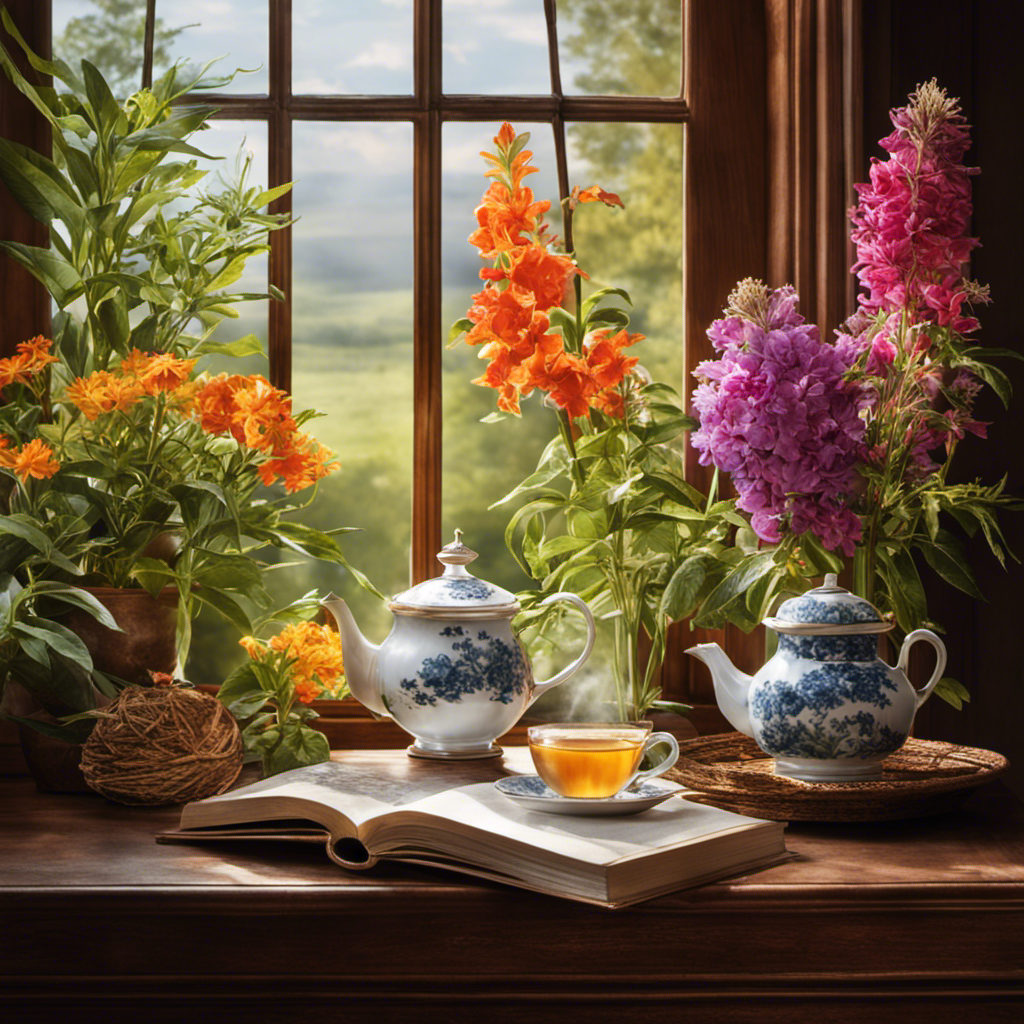
Sitting here with a steaming herbal tea in hand, I find myself utterly captivated by its soothing scent and how it gently warms my spirit.
There’s something truly magical about herbal tea – a natural elixir that offers a multitude of health benefits. From providing a natural source of energy to its vast variety of flavors and ingredients, herbal tea is a true powerhouse.
It’s a caffeine-free option that not only hydrates but also calms and relieves stress. As I delve deeper into the world of herbal tea, I discover its antioxidant properties, making it a true champion for my overall well-being.
And the best part? It’s a sustainable and environmentally friendly choice.
So, join me on this journey as we explore why drinking herbal tea is not just a healthier option but a delightful one that nourishes both body and soul.
Key Takeaways
- Herbal tea offers a flavorful alternative to plain water, while coffee can be more bitter and strong in taste.
- Herbal tea contains antioxidants that protect against free radicals, while coffee does not have the same level of antioxidant content.
- Herbal tea has calming and stress-relieving effects, promoting mental clarity and reducing anxiety, whereas coffee can sometimes increase anxiety levels.
- Drinking herbal tea supports sustainable farming practices and reduces the need for harmful pesticides and synthetic fertilizers, making it a more environmentally friendly choice compared to coffee.
Health Benefits of Herbal Tea
You’ll love how herbal tea can boost your overall health and well-being! Herbal tea is a wonderful natural remedy that offers a wide range of health benefits.
One of the key advantages of herbal tea is its ability to support the immune system. Certain herbs like echinacea and elderberry are known for their immune-boosting properties, helping to ward off colds and flu.
Additionally, herbal teas are rich in antioxidants, which help to combat free radicals and reduce inflammation in the body. They can also aid in digestion, relieve stress, and promote relaxation.
Unlike coffee, herbal tea is caffeine-free, making it a great choice for those who are sensitive to caffeine or looking to reduce their intake.
So why not swap your cup of coffee for a delicious and healthful cup of herbal tea? Your body will thank you!
Natural Source of Energy
With its invigorating properties, herbal tea provides a natural boost of energy, setting the stage for a productive day ahead. As a caffeine alternative, herbal tea offers a natural source of energy that can help us stay alert and focused without the jitters or crashes that come with coffee.
Unlike coffee, which contains high levels of caffeine that can lead to dependency and withdrawal symptoms, herbal tea harnesses the power of natural ingredients to provide sustained energy throughout the day. Ingredients like ginseng, ginger, and peppermint are known for their energizing properties and can help improve mental clarity and concentration.
Additionally, herbal tea is rich in antioxidants, which support overall health and vitality. So, why rely on coffee when you can experience a natural energy boost with herbal tea?
Variety of Flavors and Ingredients
Explore a world of tantalizing flavors and irresistible ingredients that will leave your taste buds craving more. Herbal tea offers a wide variety of flavorful blends that can satisfy any palate. From soothing chamomile to invigorating peppermint, there is a herbal tea for every mood and occasion. These teas are created by combining different herbs and botanicals, resulting in a unique and refreshing taste experience. Moreover, herbal teas are often made with natural ingredients that have been used for centuries as herbal remedies. This means that not only are you enjoying a delicious beverage, but you are also benefiting from the healing properties of these herbs. So why settle for a plain cup of coffee when you can explore the world of herbal tea and indulge in its flavorful blends and herbal remedies?
| Flavors | Ingredients | Benefits |
|---|---|---|
| Chamomile | Chamomile flowers | Calming and aids in sleep |
| Peppermint | Peppermint leaves | Refreshing and aids in digestion |
| Lavender | Lavender buds | Relaxing and helps reduce stress |
Antioxidant Powerhouse
When it comes to the antioxidant powerhouse of herbal tea, I can personally attest to its ability to fight free radicals and promote overall well-being.
The high concentration of antioxidants in herbal tea helps to neutralize harmful free radicals in the body, reducing the risk of chronic diseases.
Additionally, the diverse range of herbs and plants used in herbal tea provide a holistic approach to improving overall health, offering a natural and nourishing solution for optimal well-being.
Fights Free Radicals
Drinking herbal tea is a great way to combat free radicals and protect your body. Not only does herbal tea taste delicious, but it also contains powerful antioxidants that can help fight inflammation and boost your immune system. One of the main benefits of herbal tea is its ability to fight free radicals. Free radicals are unstable molecules that can damage cells and contribute to various diseases. By consuming herbal tea regularly, you can provide your body with a rich source of antioxidants that help neutralize these harmful molecules. To give you a better understanding of the antioxidant power of herbal tea, here is a comparison table showcasing the antioxidant content of popular herbal teas:
| Herbal Tea | Antioxidant Content | Benefits |
|---|---|---|
| Green Tea | High | Fights inflammation, supports heart health |
| Chamomile Tea | Moderate | Promotes relaxation, aids sleep |
| Rooibos Tea | Low | Soothes digestion, supports healthy skin |
By incorporating herbal tea into your daily routine, you can enjoy its many benefits and give your body the protection it needs against free radicals.
Promotes Overall Well-being
Incorporating herbal tea into your daily routine can leave you feeling rejuvenated and ready to take on the day. Not only does herbal tea offer a delicious and comforting alternative to coffee, but it also promotes overall well-being.
Herbal teas, such as chamomile and peppermint, have been used for centuries to support digestion and promote a healthy gut. These teas contain natural compounds that can soothe an upset stomach, relieve bloating, and even alleviate symptoms of irritable bowel syndrome. By promoting digestion, herbal tea can help you maintain a healthy and happy digestive system.
Additionally, herbal tea is rich in antioxidants, which can help boost your immune system. Antioxidants are known for their ability to fight free radicals in the body, reducing the risk of chronic diseases and boosting overall health. By incorporating herbal tea into your daily routine, you can give your immune system the support it needs to keep you feeling your best.
In summary, drinking herbal tea promotes digestion and boosts the immune system, making it a great choice for those looking to improve their overall well-being. So why not swap out your morning cup of coffee for a soothing cup of herbal tea? Your body will thank you.
Hydration Benefits
Sipping herbal tea is a delightful way to keep your body hydrated and nourished. Not only does herbal tea provide hydration benefits, but it can also aid in weight loss.
Unlike coffee, which can be dehydrating, herbal teas are made from plants and contain natural compounds that promote hydration. These teas are typically caffeine-free, allowing you to stay hydrated without any negative effects.
Additionally, certain herbal teas, such as green tea and oolong tea, have been found to boost metabolism and promote weight loss. These teas contain antioxidants called catechins, which can help increase fat burning and improve overall body composition.
So, if you’re looking for a refreshing and healthy way to stay hydrated and support your weight loss goals, herbal tea is the perfect choice.
Caffeine-Free Option
Indulge in the delightful embrace of a caffeine-free herbal elixir, soothing your senses and giving your body the nourishment it craves. When it comes to beverage options, caffeine alternatives can provide a soothing and calming experience.
Here are four reasons why choosing a caffeine-free herbal tea over coffee can be a wise choice:
-
Relaxation: Herbal teas like chamomile, lavender, and peppermint are known for their calming properties, helping to reduce stress and promote relaxation.
-
Improved Sleep: Unlike coffee, herbal teas don’t contain caffeine, making them a great choice for those looking to improve their sleep quality and quantity.
-
Hydration: Herbal teas are a great way to stay hydrated throughout the day, as they provide a flavorful alternative to plain water.
-
Antioxidant Boost: Many herbal teas contain antioxidants, which can help protect your body against free radicals and promote overall health.
Incorporating caffeine-free herbal teas into your daily routine can provide a soothing and nourishing experience, offering an array of benefits for both your mind and body.
Calming and Stress-Relieving Effects
When it comes to relaxing and unwinding, herbal tea is my go-to beverage. The calming and stress-relieving effects of herbal tea are well-known and have been supported by research. It helps reduce anxiety and promotes mental clarity, allowing me to feel more at ease and focused throughout the day.
Relax and Unwind with Herbal Tea
Kick back and let herbal tea help you unwind and relax. Herbal tea is a great way to create a calming routine and find moments of tranquility in our busy lives. When it comes to relaxation techniques and mindfulness practices, herbal tea can be a valuable tool.
Here are a few reasons why herbal tea is the perfect companion for relaxation:
-
Variety: There are countless flavors and blends of herbal tea to choose from, allowing you to find the perfect taste that helps you unwind.
-
Aromatherapy: The soothing aroma of herbal tea can have a positive impact on our mood and help us relax.
-
Ritual: Preparing a cup of herbal tea can become a mindful ritual, allowing us to slow down, focus on the present moment, and let go of stress.
So next time you need to relax and unwind, reach for a cup of herbal tea and let its calming effects wash over you.
Reduce Anxiety and Promote Mental Clarity
Immerse yourself in a soothing oasis of calmness and clarity with the gentle embrace of nature’s elixir. Herbal tea, a natural remedy, has been shown to reduce anxiety and promote mental clarity.
Unlike coffee, which can sometimes leave you feeling jittery and on edge, herbal tea contains compounds that have a calming effect on the mind and body. Research has found that certain herbs, such as chamomile and lavender, have anxiety-reducing properties, helping to relax the nervous system and alleviate stress.
Additionally, herbal tea can improve focus and mental clarity. The antioxidants found in herbal tea, such as catechins and flavonoids, have been linked to enhanced cognitive function and improved attention span.
So, if you’re looking for a beverage that can help you unwind and stay focused, herbal tea is the perfect choice.
Sustainable and Environmentally Friendly
Choosing herbal tea over coffee isn’t just a healthier choice, but also a more sustainable and environmentally friendly one.
When it comes to sustainable farming, herbal teas are often cultivated using organic and natural methods. Farmers use techniques like composting and crop rotation, which help maintain soil fertility and reduce the need for harmful pesticides and synthetic fertilizers.
Additionally, herbal teas are often packaged in eco-friendly materials such as biodegradable tea bags or loose leaf options that minimize waste.
By opting for herbal tea, you’re not only benefiting your own health but also supporting sustainable farming practices and reducing your environmental footprint.
So next time you reach for a beverage, consider the sustainable and eco-friendly option of herbal tea.
Frequently Asked Questions
What are some common herbal tea flavors and ingredients?
There are a variety of herbal tea flavors and ingredients, each with unique health benefits. Some popular types include chamomile for relaxation, peppermint for digestion, and ginger for immunity. Choose the one that suits your needs best.
How does herbal tea compare to coffee in terms of hydration benefits?
Herbal tea is equally hydrating as coffee, but with added benefits. While coffee can lead to dehydration due to its diuretic properties, herbal teas like chamomile and hibiscus can help maintain hydration levels and provide antioxidants for overall well-being.
Can herbal tea provide a sustainable and environmentally friendly alternative to coffee?
Herbal tea can provide a sustainable and environmentally friendly alternative to coffee. Its production requires less water, land, and energy compared to coffee, reducing the overall environmental impact.
Are there any potential side effects or risks associated with drinking herbal tea?
Potential health risks associated with drinking herbal tea include allergic reactions, interactions with medications, and contamination. Long-term effects are uncertain due to limited research, but moderation and consulting a healthcare provider can help minimize any potential risks.
How does herbal tea help in calming and relieving stress?
Herbal tea helps calm and relieve stress by promoting relaxation and reducing anxiety. It has been shown to improve sleep quality and enhance mental well-being, offering holistic benefits for relaxation and stress relief.
Conclusion
In conclusion, after exploring the numerous health benefits of herbal tea, it’s clear that choosing this beverage over coffee is a wise decision. Just like a gentle breeze in a serene meadow, herbal tea provides a natural source of energy without the jitters and crashes associated with coffee. Its variety of flavors and ingredients symbolize the diverse and holistic approach to wellness.
With its antioxidant power and hydration benefits, herbal tea truly nourishes both the body and the soul. So, why not sip on a cup of herbal tea and embrace a healthier, more sustainable lifestyle?
Noah, the Editor-in-Chief at Cappuccino Oracle, plays a pivotal role in shaping the voice and vision of our renowned platform. With an unwavering passion for coffee, coffee alternatives, and tea, Noah leads Cappuccino Oracle towards new horizons in the realm of coffee journalism.
Beyond his professional responsibilities, Noah serves as a mentor and guiding force for his team. His dedication to journalistic excellence and genuine love for coffee, coffee alternatives, and tea continue to inspire and motivate the Cappuccino Oracle family. In the ever-evolving world of these beverages, Noah’s leadership ensures that our platform remains at the forefront, delivering enlightening and enjoyable content to our readers worldwide.
-

 Espresso Machines Reviews3 weeks ago
Espresso Machines Reviews3 weeks agoDeLonghi Eletta Explore: A Comprehensive Review [2025]
-

 Espresso Machines Reviews4 weeks ago
Espresso Machines Reviews4 weeks agoILAVIE 20 Bar Espresso Machine Review (2025)
-

 Espresso Machines Reviews4 weeks ago
Espresso Machines Reviews4 weeks agoSUMSATY Espresso Machine Review (2025)
-
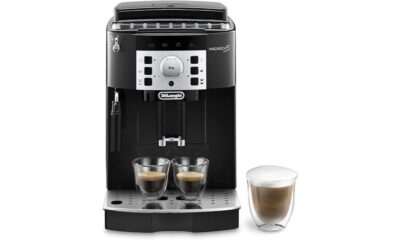
 Espresso Machines Reviews3 weeks ago
Espresso Machines Reviews3 weeks agoDeLonghi Magnifica S ECAM22.110.B Review: A Coffee Lover's Dream [2025]
-
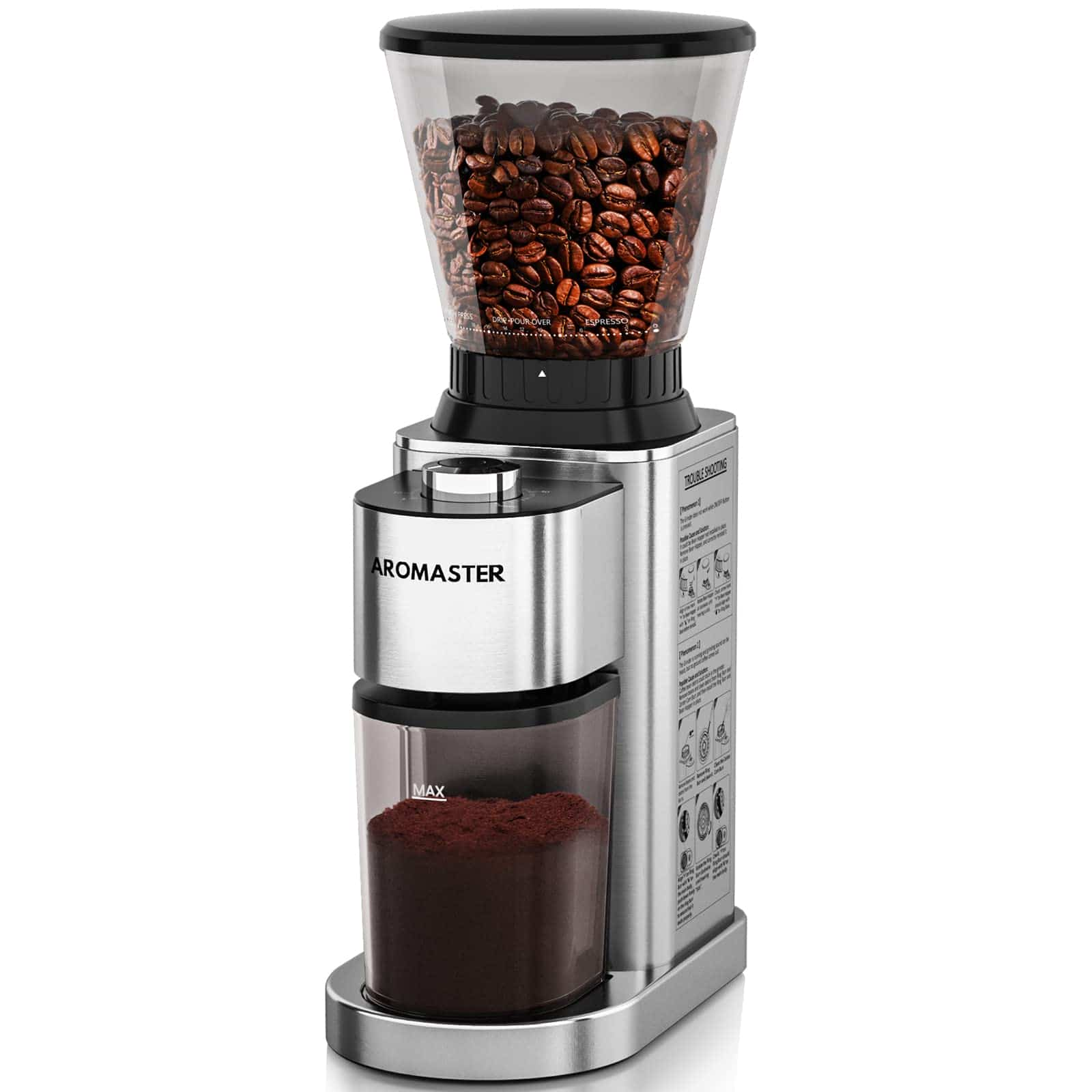
 Coffee Grinders Reviews4 weeks ago
Coffee Grinders Reviews4 weeks agoAromaster Burr Coffee Grinder Review (2025)
-

 Espresso Machines Reviews4 weeks ago
Espresso Machines Reviews4 weeks agoMAttinata Espresso Machine Review (2025)
-

 Espresso Machines Reviews4 weeks ago
Espresso Machines Reviews4 weeks agoCafe Bueno Super Automatic Espresso Machine Review (2025)
-
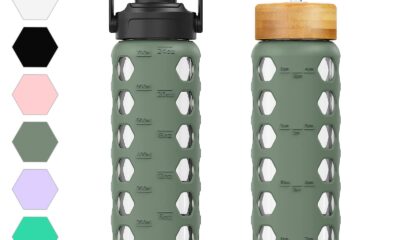
 Cappuccino Oracle Selected Reviews3 weeks ago
Cappuccino Oracle Selected Reviews3 weeks agoBest Glass Water Bottles for Eco-Friendly Hydration [2025]





